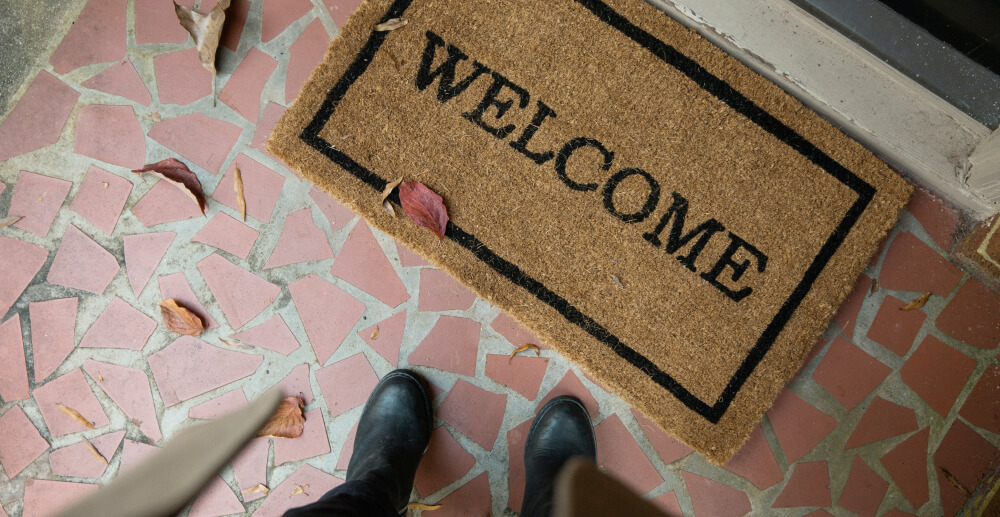Fatherhood in recovery can be hard, but it is worth it. Three fathers in recovery share their experiences and advice to encourage other sober dads.
Although many parents have substance use disorder, it’s no secret that being a responsible, involved parent is infinitely harder with substance use disorder. Staying in recovery while being a father is also not an easy feat, but it’s so important and rewarding. For these three fathers in recovery, the best Father’s Day gift is the ability to be present for their children.
Becoming a father in sobriety
For some, getting sober comes before fatherhood. Brian List of Arizona was in his 18th year of recovery when he found out he was going to be a dad. Still, the news was overwhelming.
List said, “I had a tool kit, and I was well equipped to handle the massive amount of feelings I was having about becoming a father. I always had this belief that I didn’t have enough selflessness to be a dad … I was filled with love and anxiety, and wondered if I was father material. I couldn’t wait to meet my son, but I was so scared. Would I break him? Would he like me? I was scared of this whole new responsibility.”
Sam Kratzer of Minnesota was also sober when he became a father, but that didn’t stop an influx of emotions. “My first feeling when I found out I was going to be a father was honestly terror,” he said. “I was over two years sober at that point, but I didn’t feel prepared for the responsibility. I guess nobody really is. Then there was another shot of terror a couple of weeks later when we found out it was twins!”
Seeking recovery after having children
For others though, fatherhood is the catalyst for making the choice to get sober. Nate J of Minnesota is a father of two. However, he did not get sober until after his second child, a daughter, was 6 years old. It has now been more than three years since he stopped drinking.
“My relationship with my son was bad,” Nate said. “I always felt he loved his mother more than me, so being the dad I thought I should be never materialized. I continued to drink and blame all my failings with my children on everyone but myself.”
After choosing to stop drinking, Nate says fatherhood becomes a different journey. “Once I was sober, being a father took on a whole new meaning,” he said. “There’s a lot more time to do what my kids want to do. My father was not there a lot, so I made the choice to be different than him.”
For Kratzer, being in recovery has given him the opportunity to truly be there for his children in a positive way. “Being sober has shaped the way I father basically by allowing me to be present,” Kratzer said. “When I was drinking, by the end of the line I was usually either angry or absent—not the kind of person who would be a fit father. Being sober has given me the tools to engage with people in a healthy way and be present and contribute to my relationships, including those with my kids.”
The path to recovery applies in other aspects of life as well, List says, as he tries to live by the 12 steps in his relationship with his son. “I try to practice the principles of the 12 steps in my relationship with Easton,” he said. “I realize I can’t control him. I don’t own him. He is his own being, so I must let go and just be. Because I can be reliable, I must be present. I can love, so I must love him. I get resentful at him, so I must be willing to walk through that skillfully. Sometimes I handle things unskillfully, so I can make amends to him. Trust me, that is humbling. Because of recovery in my life, Easton has a safe place to call home.”
Advice for sober dads
When it comes to sober parenting, expect some struggles. However, you don’t have face them alone. For Kratzer, connecting with other fathers in recovery has been vital. “Make friends with other sober dads,” he said. “One of the things about being an alcoholic is that you have this idea that nobody understands your struggles, and I found the same to be true with being a sober dad—especially a dad of twins. Find people in the same situation you’re in and support each other.”
List recommends acknowledging the fact that love alone will never be enough to mend a broken relationship with your children, and that recovery has to be the solution. “All the love in the world for your little one won’t fix the problem,” List said. “It can move you in the right direction, but it’s not a cure-all. I know this because I’ve seen it. I’ve watched fathers welcome their newborn into this world, then go and get high. I’ve watched men sober up for their son or daughter, then relapse and go to jail or die.”
For List, recovery relies heavily on the support of his sober community, which he recommends for anyone who wants to get and stay sober. “We can talk about the messy situations that we’ve gotten ourselves into,” List said. “We can talk about our struggles and fears. We can talk about hopelessness and unmanageability. Then we can talk about wanting to change and what we need to do to get to a better place. As an addict and alcoholic in recovery, I can share with you what I did to get free from the struggle.”
In the end, Nate says, it comes down to being honest with yourself and with your kids. “Wake up,” he said. “See the damage you are doing to your kids and yourself. You have a problem, and your kids see it. You are hurting them and others, and it is not fair. Your kids will understand and support you as long as you are trying.”









